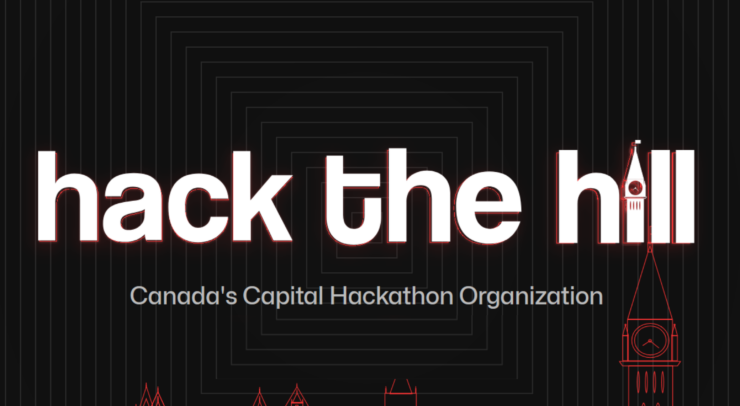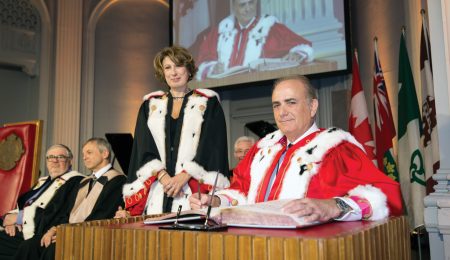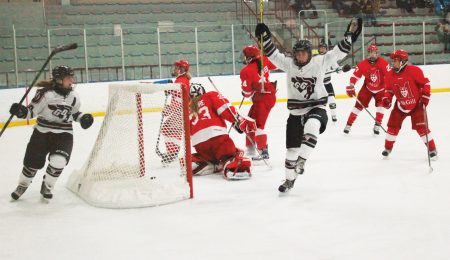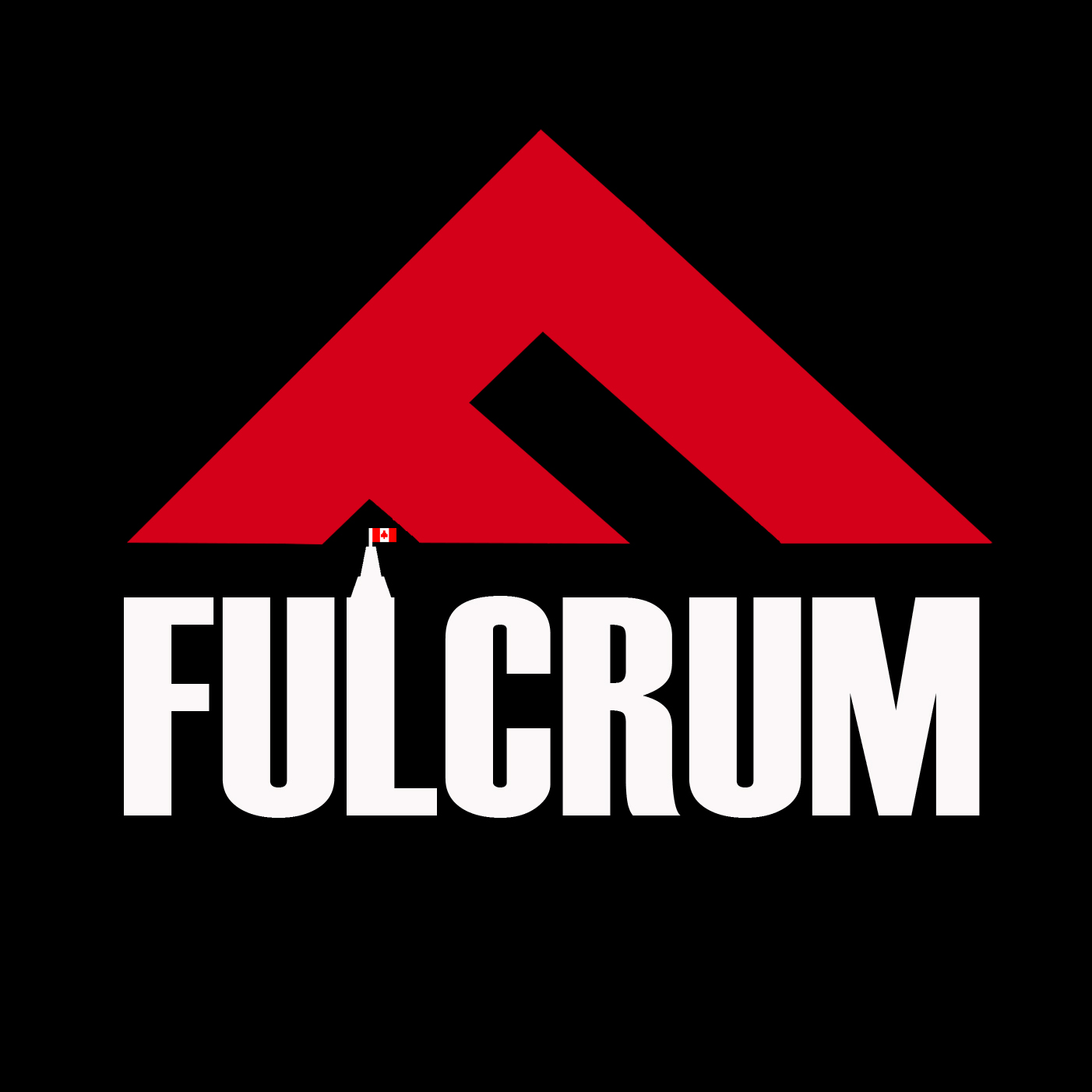Hack the Hill ran from Sept. 27-29 and saw an increase in all things programming education
On Sept. 27, the Fulcrum sat down with Hack the Hill’s VP Marketing Andrea Todorovic to discuss this year’s Hackathon “Hack the Hill,” being hosted by a club of the same name, taking place at the University of Ottawa inside the Learning Crossroads of CRX. Outlining the event, Todorovic highlighted that the purpose of the activities was “all about learning things.”
Students from the University of Ottawa, Carleton University, and visitors from beyond Ottawa, came earlier that night to opening ceremonies, and participated in some discussions with sponsors such as Ciena. They then came together to learn different engineering and programming skills, meet new people and crucially work and code non-stop on a prototype for the entire weekend, up and until Sunday at 11 a.m. where they would present their work and be judged to win several prizes.
Noting the large number of cardboard boxes behind the service desk, Todorovic commented the club’s Hackathon was “one of the largest growing,” with over 750 registered hackers this year for the activities. With the increase in numbers, there was also a noted increase in sponsors alongside Ciena; Redbull, Ross, P&G, and Lone Haven had all participated in the event by donating resources or money alongside providing their own hacking challenges for students to try and complete by the end of the weekend.
Hack the Hill continued to provide students with difficult challenges related to programming, time management, and cooperation with peers, all while affording them opportunities to learn something new and possibly be recruited by sponsors. To burn off the stress, Todorovic pointed towards the “Karaoke Night” and another event meant to get participants outside for a few minutes, “Touch Grass.”
As the night wound down from the events and settled into participants working in groups, Todorovic discussed the goals for the club’s winter term such as planning new events and bringing in new team members. Closing out the night, the Fulcrum asked for advice from Todorovic to anyone curious in getting involved with the Hackathon: “Everyone is welcome; there’s opportunities for everyone.”
On the second day of Hack the Hill, workshops were running around the clock. If participants weren’t milling around the different stands in the buildings, they gathered up with their teams in different study rooms on every floor, huddled around a table of computers and snacks and encircled by backpacks and sleeping bags.
For those that weren’t so busy and were willing to talk to the Fulcrum, they were enthusiastic and very happy about how the Hackathon had been going so far. “The event? Amazing; they killed it,” commented Rabbi Daoud, a fifth-year software engineering student from the University of Ottawa.
The Fulcrum also spoke to Ammar Mahmood, a second-year student studying electrical engineering, who had come from the Toronto Metropolitan University (formerly Ryerson): “Yeah it was like a six hour bus ride, but these workshops are super worth it.” he said. “And a Hackathon, [is a] great opportunity not only to meet new people, but also to learn new skills and apply skills in projects.”
Mahmood further commented that “it’s not very often that you have resources given to you and in a strict timeline to build something. And sometimes you just need that motivation, that push, that one weekend to build something that can solve problems.”
Later that day, a workshop ran by Ciena, one of the major sponsors of Hack the Hill, discussed generative artificial intelligence, the kind of program that runs Chat GPT. There was also a workshop from Ross Video on Field Programmable Gate Arrays (FPGA), and its use on graphic generation — a notable draw for the event as it’s one of the only Hackathons in North America that offers it.
The Hackathon was visited midday by a team of therapy dogs, meant to provide stress relief for the Hackers during this intense event. Present throughout the length of the event was the Latte Lab, a makeshift barista bar serving a host of hot drinks to students that many people mentioned to the Fulcrum as a highlight.
“It’s very unique. I don’t think many other Hackathons, if any at all in Canada, have this.” said Steven Li, a recent Computer Engineering graduate from the University of Ottawa who was running the service. “We’ve had over 200 [participants who have] ordered right now. It’s only on day two. So yeah, it’s been very popular, and people like it.” Li is also one of the co-founders of Hack the Hill.
The president of Hack the Hill, Daniel Thorp, drew equally positive takeaways. “I’ve seen great reception. I think that people have been telling me that this event is, you know, more lively than other ones they’ve been to, that there’s a lot more going on.”
Thorp has been president of Hack the Hill since June, but has been involved with the organization for a long time. He then commented on how he had found his time working with Hack the Hill: “It’s one of the most rewarding and interesting and varied experiences of student work I’ve been in.”
One of the priorities of Hack the Hill, as stated by Thorp, has been to make the event more open and accessible. “We try to also lower that barrier of entry into this by making sure we get beta workshops, by making sure that we have events free to attend, trying to make sure that anyone can attend.”
As the weekend continued on, the Hack the Hill team accentuated the desire to continue doing events such as Hackathons and providing STEM education opportunities. Further details on Hack the Hill plans can be found on their website.







